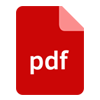Quo Vadis Europa?
May 15, 2003, Prague
Vinárna of the Prague Municipal House, from 9.00am until 1.30pm
In the countries of Central and Eastern Europe, we are witnessing the so-called process of “returning to Europe”. Most of the citizens of the EU candidate countries perceive it as a return to their rightful place. The EU expansion, which is the manifestation of these ideas, confirms the European values and traditions within these countries, as well as reinforces their democracies.
On the other hand, we hear voices of criticism. People feel that the opportunity to do something about influencing changes around them is growing distant. Some argue that Europe’s further expansion, along with its growing bureaucracy, is taking place at the expense of democracy.
What should Europe look like? Will we live in the supranational “Brussels’ Europe”, or in a Europe of nation states? Will the European Constitution guarantee human rights, or will it further infringe upon national sovereignty?
With its substantial economic potential, Europe plays a significant role on a global scale. Does the assertion that Europe is an economic giant but a political dwarf still apply?
The strength of Europe lays in its unity, but constantly expanding European Union may face internal crises and conflicts. Traditionally, the strongest partner as well as competitor of Europe has been the United States of America. What are the perspectives for Europe in the globalized world, in relation to the USA and other global partners?
Participants of the “Quo Vadis, Europa?” discussion tried to answer these and other questions while representing different visions of European development and the future of Europe.
The meeting was attended by the European Commission’s advisor Graham Avery, Czech philosopherVáclav Bělohradský, Ambassador of the European Commission to the Czech Republic H.E. Ramiro Cibrian, former Minister of Foreign Affairs of the Slovak Republic, Pavol Demeš, President Václav Havel, political scientist Jacques Rupnik, and British sociologist Larry Siedentop. The roundtable was moderated by Czech publicist Jan Urban.
The discussion was held as part of the Forum 2000: Bridging Global Gaps project in cooperation with the partners of the Forum 2000 Foundation.


